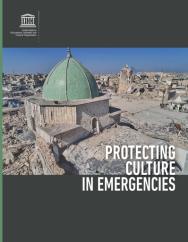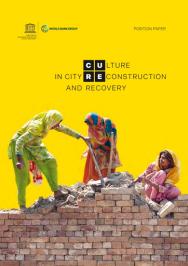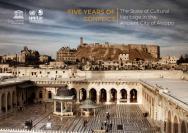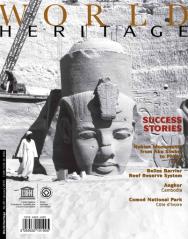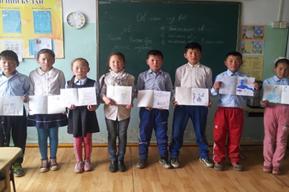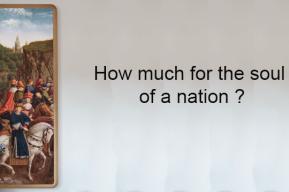
紧急情况下的文化
在武装冲突或灾害情况下,文化由于其固有的脆弱性和巨大的象征意义,处境尤其危险。与此同时,文化又是恢复的推动力,能增强社群复原力。联合国教育、科学及文化组织(教科文组织)通过实施各项彼此相辅相成的文化公约,与国际社会一道致力于在紧急情况下保护文化,促进文化多元化;致力于在国内动乱和战争期间,以及在自然或人为隐患引发的灾害初期开展活动。
Cultural Heritage & Armed Conflicts
Culture, being on the front lines of conflicts, is too often a victim of hostilities. The destruction of heritage fuels violence, hatred and vengeance among people and weakens the very foundations of peace, hindering reconciliation when the dust of war settles.
For this very reason, protecting culture and combatting the crimes against ithave been at the core of UNESCO’s mission since its foundation. In this spirit and on the promise of preservation of heritage for future generations, the Convention for the Protection of Cultural Property in the Event of Armed Conflict and its two Protocols (1954 and 1999) have been adopted under the auspices of UNESCO. Paving the way for the birth of numerous international instruments in the field of culture, the 1954 Hague Convention is a fundamental international instrument for conflict prevention, post-conflict recovery and building the defenses of peace.

Heritage Emergency Fund
Emergency preparedness and response within the domains of the UNESCO Culture Conventions.
Revive the Spirit of Mosul
The city of Mosul, which means "the linking point" in Arabic, is one of the oldest cities in the world. For millennia, it has been a strategic location due to its crossroads and bridge between north and south, east and west.
Since February 2018, UNESCO has launched the flagship initiative “Revive the Spirit of Mosul” as a response to the recovery of one of Iraq's iconic cities.

Gaza Strip / Palestine
Following the Hamas terrorist attacks against Israeli civilians on 7 October, the operations of the Israeli army in the Gaza Strip have caused a dramatic humanitarian crisis and massive destructions affecting all aspects of civilian life. UNESCO, including its office in Ramallah, is mobilized within the framework of its mandate for education, culture and press freedom.
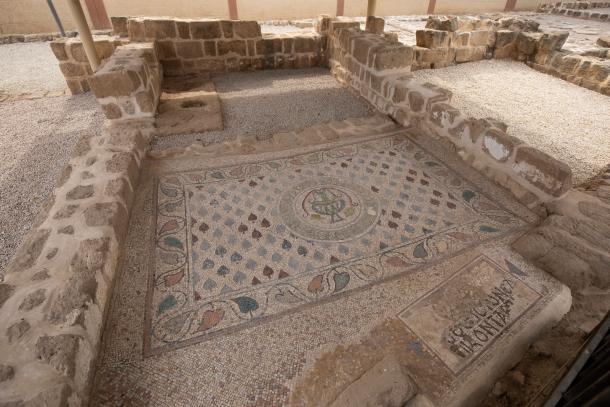
UNESCO's action in Ukraine
As a result of the war in Ukraine, UNESCO has mobilised to denounce violence against journalists, promote the importance and therefore the protection of cultural institutions, and work for the maintenance of education to ensure inclusive and equitable quality education and promote lifelong learning opportunities in Ukraine.
LiBeirut
On 4 August 2020, two massive explosions hit the port of Beirut claiming the lives of 220 people, and leaving more than 6,000 injured and 300,000 families homeless. Nevertheless, resilience and the instinct of survival soon took over. The young armed with nothing but brooms to clean their city soon rushed to the rescue of their capital. The international community expressed its solidarity with the Lebanese people. Visiting Beirut on 27 August 2020, UNESCO Director-General Audrey Azoulay, launched the LiBeirut (For Beirut) initiative from across the port, an initiative that aims to mobilize the international community to support the reconstruction of the city’s educational and cultural sectors.

阅读更多
教科文组织在这一领域的倡导宣传,促使联合国安全理事会于2015年通过第2199号决议并于2017年通过第2347号决议。前者禁止买卖从伊拉克和叙利亚流出的文化财产,后者则是安理会通过的首个侧重于在武装冲突情况下保护文化遗产的决议。
2014年,为更有效地支持会员国防备和应对紧急情况,教科文组织在文化部门设立了应急准备和反应股。2015年又设立了遗产紧急基金。这是一个汇集非专用资金并可灵活供资的机制,目的是使本组织能够快速、有效地应对危机。2015年11月,教科文组织大会通过《加强教科文组织在发生武装冲突时保护文化和倡导文化多元化的行动战略》,其中包括一项涵盖冲突和灾害问题的行动计划。
关于灾害问题,遗产紧急基金体现了《2015‒2030年仙台减少灾害风险框架》的各项原则,这些原则于2015年3月获得联合国大会的认可。在最近的冲突期间,文化遗产不仅日益遭到附带损害、大规模掠夺和非法贩运,而且还由于其对所属社群的重要意义而成为有系统和蓄意攻击的目标。摧毁叙利亚帕尔米拉考古遗址、掠夺伊拉克巴格达国家博物馆、焚烧古代手稿和毁坏马里廷巴克图陵墓,都是意图摧毁个人和群体的特性、切断他们与故土的联系、剪断将他们作为一个社群联结在一起的纽带的可悲实例。
多年来,自然和人为隐患引发的灾害,包括地震、火灾、洪灾、滑坡和台风,即便未致无数文化和自然遗产地、博物馆、文化机构和非物质实践完全灭失,也给其造成重创。尼泊尔和厄瓜多尔的毁灭性地震、缅甸的洪灾、南太平洋气旋“帕姆”、西大西洋飓风“马修”以及秘鲁继厄尔尼诺现象之后的暴雨,无不带来不可估量的损失。
然而,文化不仅仅是紧急情况的受害方。在灾害或武装冲突刚刚过去时,社群往往从遗产中找到必要的物质和精神支柱。能够探访自己的遗产——无论是宗教建筑、古城、考古遗址,还是自然风景——或者进行特定文化实践,均会带来亟需的认同感、尊严和力量。此外,紧急情况过后,文化可以成为重建经济和社会、促进宽容与和解的媒介,缓解紧张局势,防止事态再度升级为冲突。音乐、舞蹈、剧院和影院等都曾被用来在不同难民群体之间建立相互理解。
正因为如此,在紧急情况下保护文化,借助文化的力量促进建设和平、恢复与和解,以及发挥文化的潜力以减少面对灾害的脆弱性,这些对于实现可持续发展和增进安全都至关重要。
